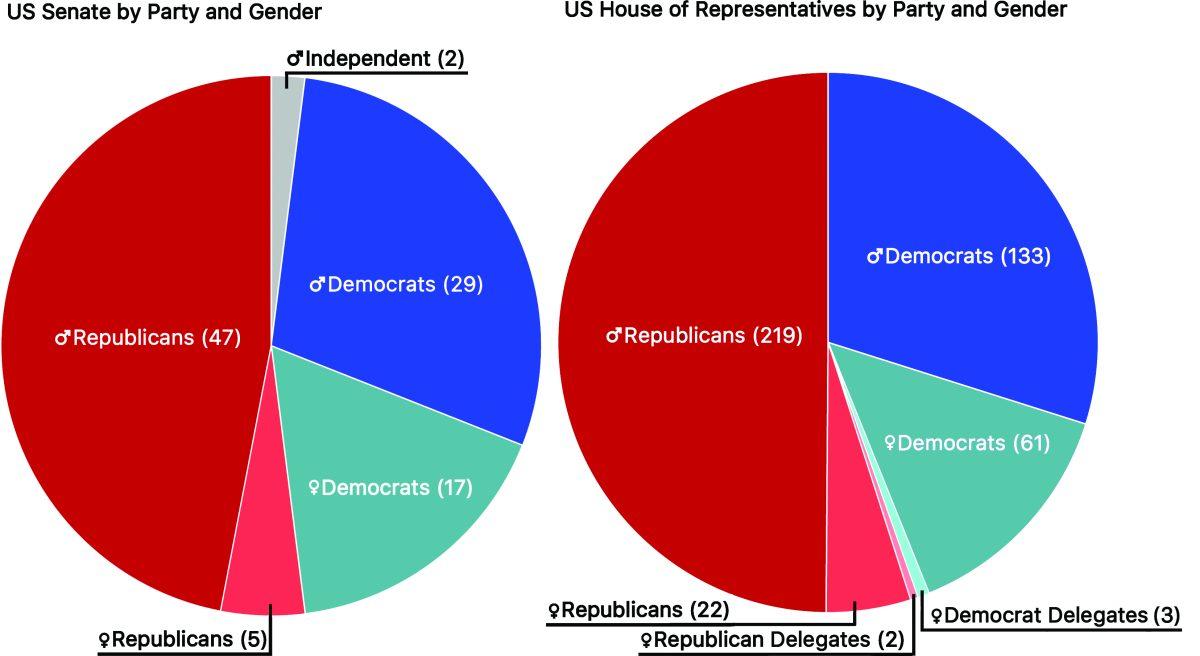Women are set to run in 2018 elections in higher numbers than ever before, and the trend has surfaced both at the national level and at the local level in Texas.
The recent primary elections in Texas have shown that record numbers of women have begun running for office. Why this trend has emerged is debatable, and whether female candidates will gain success against their male counterparts or unseat incumbents is worth analyzing.
Currently in the United States Congress, women make up 22 percent of the Senate and 19 percent of the House of Representatives, according to the Rutgers Center for American Women and Politics. In Texas, a similar number of women are represented, with a legislature composed of 20.4 percent females, according to data published by the National Conference of State Legislators.
Associate professor of political science Diana O’Brien said the problem of female underrepresentation in U.S. politics comes in two parts: supply and demand.
“Research suggests that even the most qualified women are less likely to aspire to elected office, in part because they perceive themselves as less qualified and view qualifications as especially important,” O’Brien said.
Women also face challenges when it comes to the desire of voters and party to support female candidates, according to O’Brien.
“Work by Sarah Fulton, a political science professor here at A&M, suggests some voter bias against female candidates, which is primarily concentrated among independent male voters,” O’Brien said.
Data published in an NPR article shows the number of women running for Congressional office has doubled since elections in 2016. Texas mirrors the national trend, as 50 women run for Congressional seats and 110 women for local office, according to an article published by Fortune.
Female candidates are mobilizing for various reasons, but it does beg the question of whether the Trump administration has been a part of this response. Professor of political science Maria Escobar-Lemmon said there are several factors causing women to run.
“I think we’re also seeing in general with the whole #MeToo campaign, more and more women are speaking out against sexual harassment,” Escobar-Lemmon said. “The extent to which that movement has gained traction, I think women are feeling more empowered generally. So I don’t know that the Trump presidency is the only thing driving this.”
According to an article published in The Texas Tribune, Texas’ representation in Congress has not gained a new female member since Republican Kay Granger joined the U.S. House of Representatives in 1996. With the onset of so many female candidates in the primaries, this may soon change.
El Paso County Judge Veronica Escobar and State Sen. Sylvia Garcia are two primary winners who are likely to win their elections for U.S. House of Representatives in the fall. If they succeed, they will become two of the first new women to represent Texas in Congress in 22 years and will likely be joined by others, according to an article published in The Texas Tribune.
O’Brien said when focusing on Texas elections, having women running in record numbers is important.
“Women’s representation is very low in Texas and I think Texas politics is very important,” O’Brien said. “Texas is too male, so getting women into politics in Texas is especially important.”
Female candidates hit record numbers in elections
April 1, 2018
0
Donate to The Battalion
$2065
$5000
Contributed
Our Goal
Your donation will support the student journalists of Texas A&M University - College Station. Your contribution will allow us to purchase equipment and cover our annual website hosting costs, in addition to paying freelance staffers for their work, travel costs for coverage and more!
More to Discover










